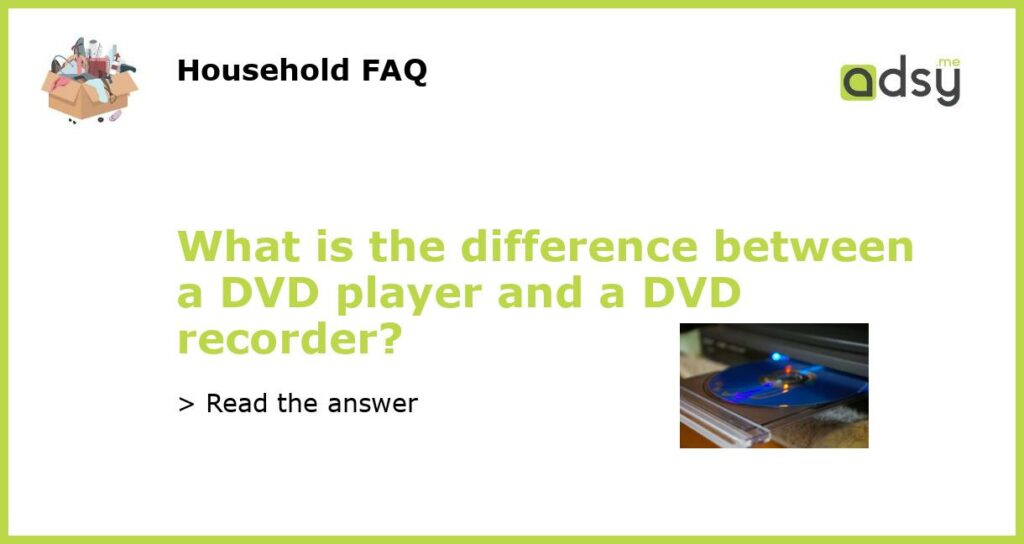DVD Player vs. DVD Recorder: Understanding the Difference
For most people, the terms “DVD player” and “DVD recorder” might seem interchangeable. After all, both devices play DVDs, don’t they? However, there are major differences between the two. Let’s dive in to see what sets them apart.
DVD Player: A Basic Overview
A DVD player’s primary function is to playback DVDs. It can be connected to a TV or a computer monitor and offers a straightforward setup. The device typically comes with composite or HDMI cable that can be used to connect it to the TV. Once connected, you can insert a DVD into the player, hit play, and enjoy the show.
DVD Recorder: More Advanced Than a DVD Player
A DVD recorder, on the other hand, goes beyond basic playback functionalities. It offers the ability to record and save TV programs, home videos, and other media contents onto a DVD. DVD Recorders can also play DVD movies and can be connected to televisions to watch its contents. DVD recorders offer various recording modes, and can capture in different quality settings.
Connections: DVD Player vs. DVD Recorder
The primary difference in connections lies with the outputs. A DVD player will typically feature composite or HDMI outputs to connect to a TV, with no additional inputs. On the other hand, a DVD recorder offers an array of input options to capture video, including RF (Antenna In), S-Video, RCA Audio L/R, Component Video, and more depending on the model.
Price Comparison: DVR Recorder vs. DVD Player
The additional features of a DVD recorder come at a cost. In general, DVD recorders are more expensive than DVD players. This is because a DVD recorder has more potential for recording and saving media to DVD, whereas a DVD player only functions to play content from DVDs. The price range for both devices can vary significantly based on brand, features, and other factors.






